What is Xerosis?
Also known as dry skin, Xerosis is prevalent when the skin appears dull and flaky. It occurs more commonly when the environmental humidity is low, as in the winter. It occurs most commonly on the arms and legs, but can also be found on the trunk of the body. Xerosis can occur at any age whether the person has or does not have other skin conditions.
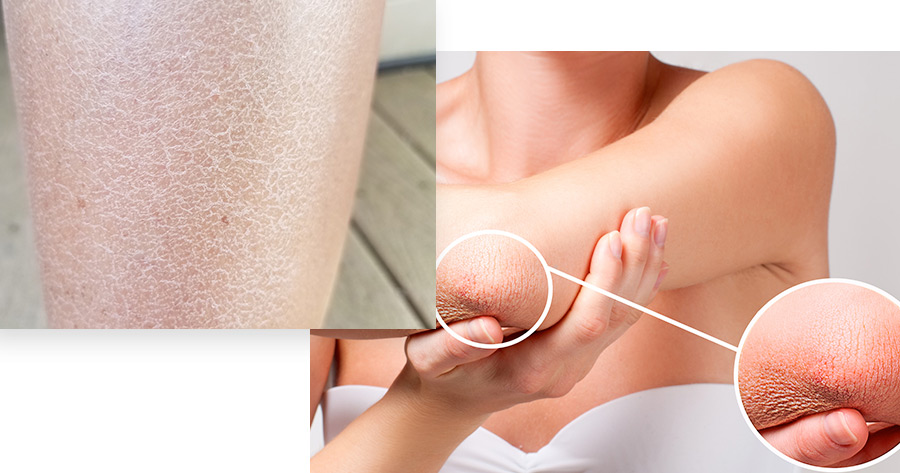
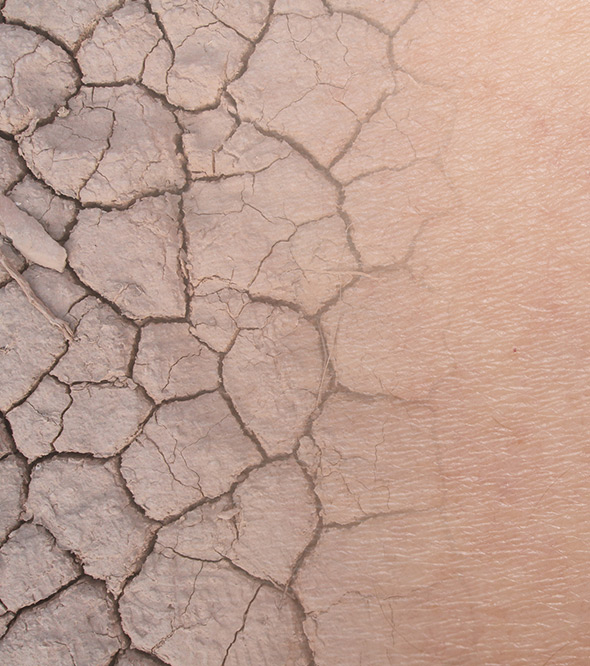
What causes Xerosis?
There are several potential causes of dry skin:
1 – Sun exposure. Sun, like many sources of heat, dries out the skin, however damage from the UV (ultraviolet) radiation penetrates deeply into the skin, beyond the first layer. The most significant harm is underneath the skin, in the dermis, which can lead to deep wrinkles and sagging skin. Sun-damaged skin and dry skin can have similar appearances.
2 – Weather. Winter time, when the temperature and humidity levels deplete, skin becomes its driest.
3 – Hot baths and showers. Taking frequent hot baths or showers breaks down the lipid barriers in the skin resulting in Xerosis. Similarly, swimming in heavily chlorinated pools has the same effect on the skin.
Medical Causes:
5 – Thyroid disorders. When the thyroid under-produces the proper amount of thyroid hormones, also known as Hypothyroidism, the activity in the sweat and oil glands is reduced, which leads to dry skin.
6 – Psoriasis. A buildup of dry, rough skin and dead skin cells that forms thick scaling on the skin is known as Psoriasis.
7 – Atopic Dermatitis. A common form of eczema, this skin condition involves sensitive and dry skin.
4 – Soaps and detergents. Many soaps and detergents dehydrate the skin. Antibacterial soaps and deodorants tend to be the most harmful, as are some shampoos that dry out the scalp.
What Will My Skin Feel Like With Xerosis?
With Xerosis, one may have a “tight” sensation in the skin. This is especially true when one is exposed to water such as after showering or swimming. The skin may be itchy and red and may even flake or scale.
Other Skin Conditions Similar to Xerosis
Atopic dermatitis is a common form of eczema which many people think is merely overly dry skin. Common affected areas are the face, sides of the neck, elbows, wrists, knees and ankles. Psoriasis is also confused with Xerosis. Both involve dry, scaly skin with redness.
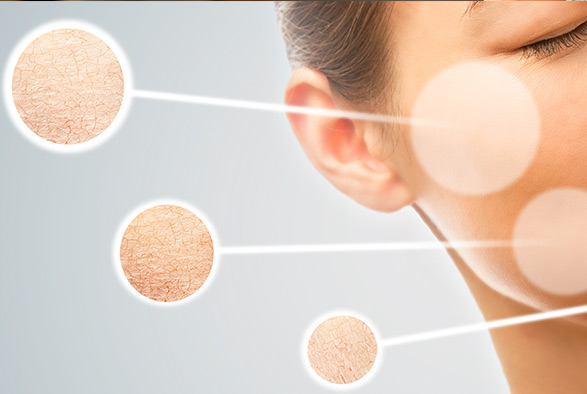
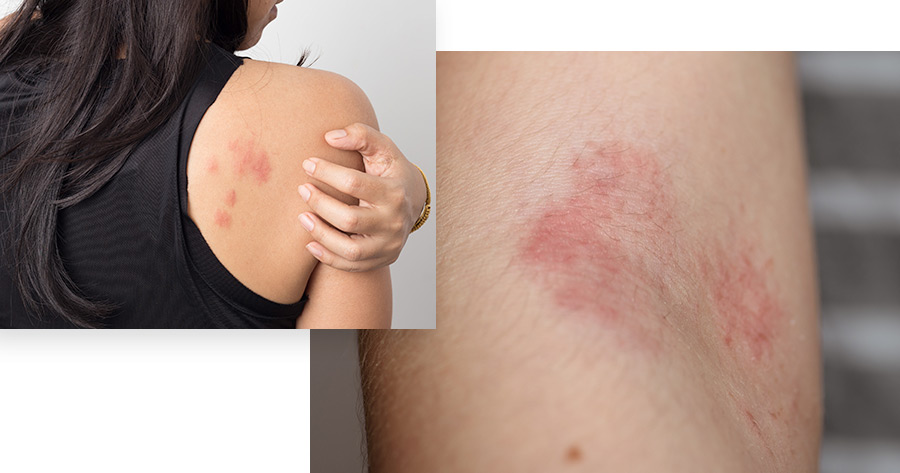
What Will Happen If I Do Not Care For My Sensitive Skin Properly?
People with a tendency of getting eczema who do not care for their skin appropriately can get Atopic dermatitis, which involves excessive dryness of the skin. It can lead to redness, cracking and inflammation. Folliculitis or inflammation of the hair follicles can also develop if the skin is not properly cared for. Cellulitis, a bacterial infection of the skin’s tissue can potentially be serious if the bacteria enter blood vessels. These conditions tend to develop as a result of one neglecting to properly care for his or her skin.
Related Conditions:
Upon being examined and tested by a Dermatologist, it may be determined that the dry skin is an indication of another, related dry skin condition such as:
1 – Keratosis pilaris. Also known as K.P., it causes little, red bumps (similar to acne) which are often on the upper arms, legs or buttocks. Rough patches are created which may appear tough and dry. The patches are often skin colored but can also be red and inflamed periodically. K.P. is not itchy or painful usually.
2 – Asteatotic eczema. This skin condition causes dry, scaly skin that looks like cracked porcelain. The affected area can get itchy, inflamed and even bleed.
3 – Ichthyosis vulgaris commonly referred to as fish-scale disease is a condition that results from skin cells that do not shed properly. Instead of falling off the surface of the skin, dead cells build up into thick dry scales. On the head, Ichthyosis vulgaris may cause flaking in the scalp. It may also present as painful fissures on the palms of one’s hands and soles of the feet.
4 – Psoriasis. This condition is not caused by dry skin. It involves areas with redness, certain areas with dry skin.
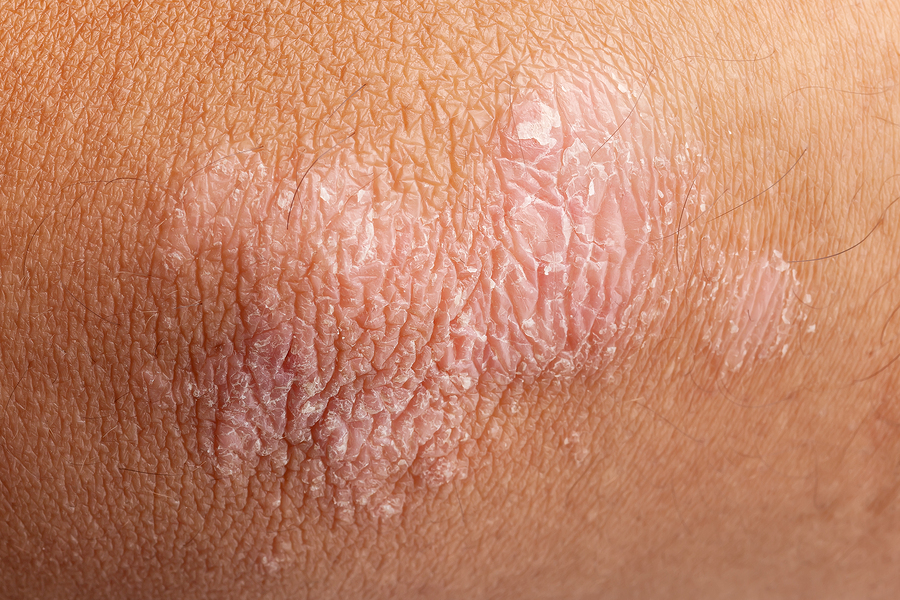
Frequently Asked Questions
What is excessive dry skin called?
In the general sense, unexplained dryness is called skin xerosis. This may be a warning sign for more serious skin complications like dermatitis or actinic keratosis. If left untreated, skin xerosis can also evolve into more serious types of dermatitis that require specialized medical attention.
How do you treat xerosis?
In order to successfully treat xerosis, you have to moisturize the skin and ensure that it is in good condition. You can start off by creating a set routine that revolves around skin health. Additionally, you should consult with a dermatologist to receive a full diagnosis and treatment plan.
What causes dry skin on your hands?
Dry skin on the hands can be caused by a variety of elements that range from chemical and sun exposure to physical conditions as well as side effects from medication. To receive the correct treatment, you must ensure you receive the correct diagnosis, so always consult with a certified dermatologist to get the best assistance.
Does drinking water help dry skin?
Some studies suggest that drinking more water can result in healthier skin because this vital liquid increases elasticity and reduces skin roughness. However, this is not a viable treatment option for skin xerosis. The best way to take care of the issue permanently is to consult with a dermatologist in your area.
What causes dry tight skin on your face?
Your face is constantly exposed to wind, direct sunlight, and other elements that affect skin health. Additionally, dry skin may be the result of medication side effects, poor dietary habits, and various external elements. The only way to get an accurate diagnosis and find out why the skin on your face is dehydrated is to find a skin care specialist in your area that has the accreditations to help you.
